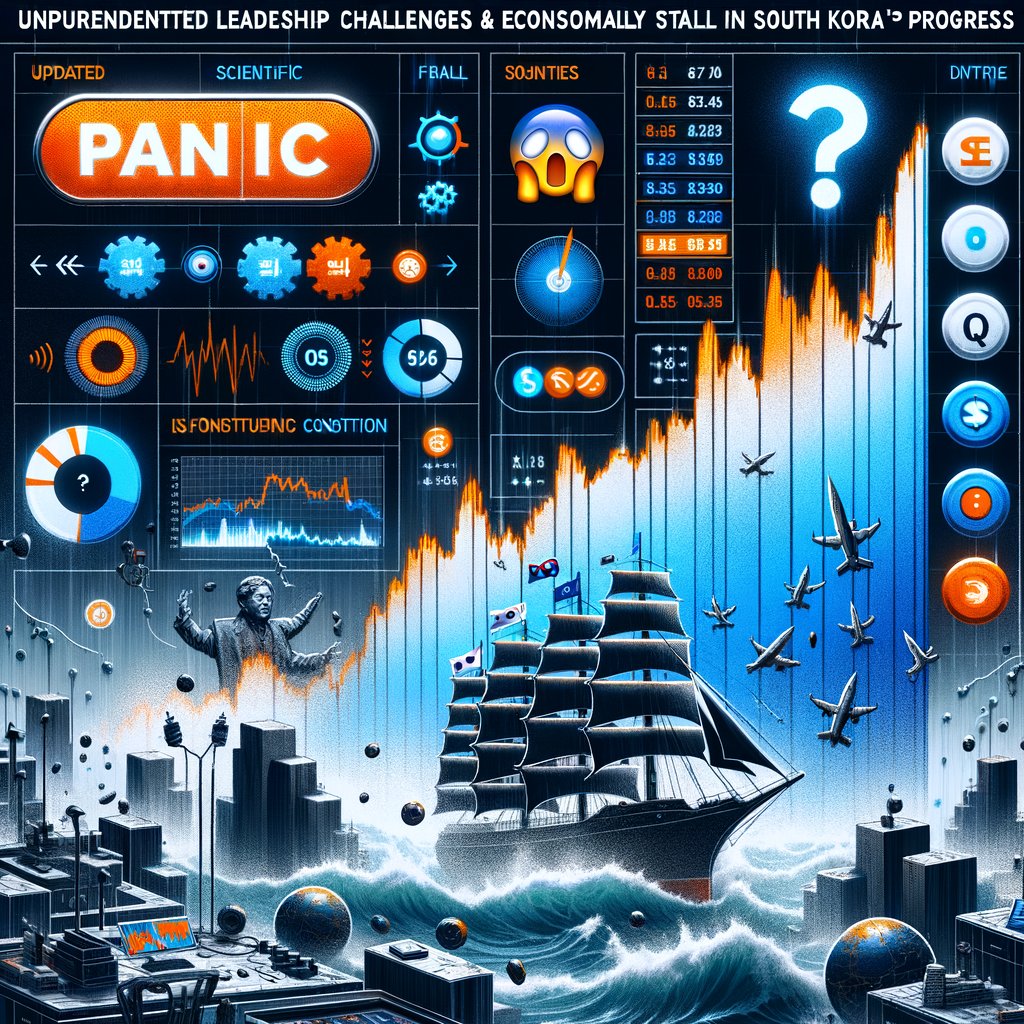Image created by AI
South Korea’s Political Crisis Plummets Economy Amid Dual Impeachment Chaos
In an unprecedented political upheaval, South Korea’s economy is reeling from the impact of two consecutive impeachments which have sown seeds of doubt among investors and rattled market confidence. The nation watched in dismay as President Yoon Suk Yeol, followed by his successor, acting president, and prime minister Han Duck-soo, faced impeachment. This political instability has driven the South Korean won to its lowest level against the dollar in nearly 14 years, illustrating the deep economic repercussions of governance in crisis.
President Yoon Suk Yeol's controversial decision to propose an abolition of civilian rule in early December spiraled into chaos, culminating in his impeachment over charges of insurrection. His plans not only brought into question the democratic foundations of South Korea but also stunned international investors who view political stability as a precursor to economic security.
The implications of these political actions were immediate on South Korea’s economy, Asia’s fourth largest. The Bank of Korea reported a significant falloff in both business and consumer confidence, marking the most considerable dip since the Covid-19 pandemic’s onset - a clear signal that domestic and international perception towards South Korea’s economic stability has been marred.
After Yoon's dismissal, his substitute Han Duck-soo also faced impeachment for allegedly obstructing the legal process to remove Yoon from office and initiate prosecution. This consecutive political shake-up forced Finance Minister, Choi Sang-mok, into the role of acting president and prime minister, who has boldly pledged to steer the nation out of these tumultuous times.
Amid this political saga, the focal point remains the Constitutional Court’s decision concerning the upholding of Yoon’s impeachment. With three seats vacant, a consensus among the remaining justices is required to finalize the impeachment process. This has left the country in a deadlock, exacerbating uncertainty and delaying economic recovery.
As Choi Sang-mok grapples with his dual roles, the South Korean economy faces urgent calls for stabilization. Investors are closely monitoring how the government navigates these turbulent waters, particularly in policies related to financial stability and international trade.
The ripple effects of South Korea’s political disturbances are expected to extend beyond its borders, potentially influencing regional economic dynamics and global market sentiments. The world’s eyes are on South Korea as it endeavors to reconcile democratic integrity and economic stability in a period fraught with unprecedented leadership challenges.










